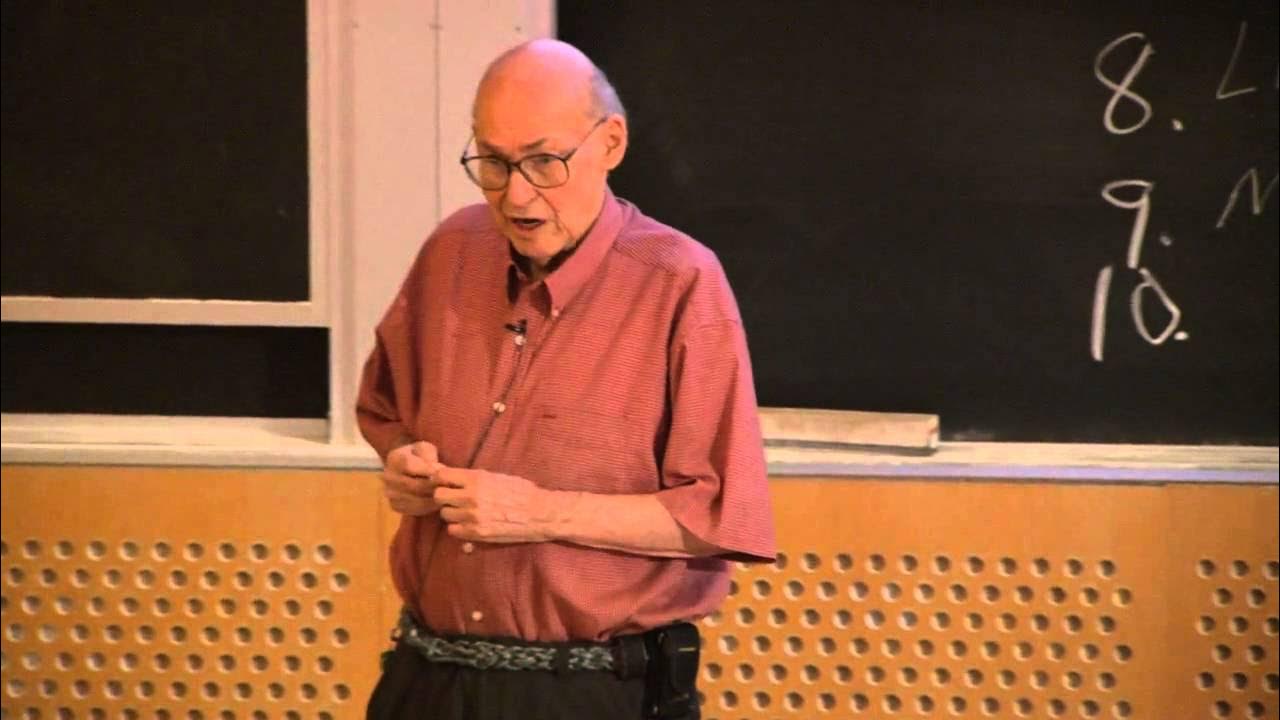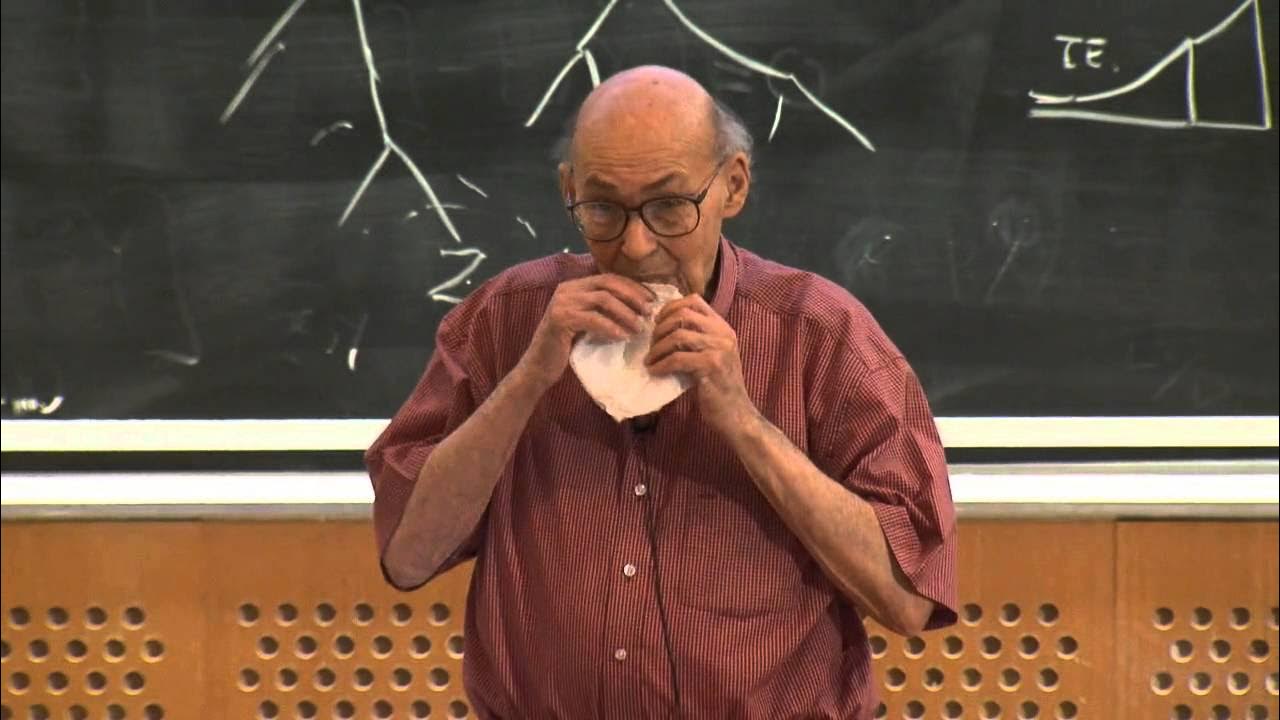PHILOSOPHY - Epistemology: The Problem of Skepticism [HD]
Summary
TLDR本视频由多伦多大学哲学教授Jennifer Nagel主讲,探讨了怀疑论问题。她通过提出人们可能正在做梦的疑问,引导观众思考我们如何确定自己的认知是真实的。视频介绍了古希腊的两种怀疑传统:学院派和皮浪派,以及它们对感官印象和知识可能性的不同看法。接着,Nagel教授通过梦境、邪恶天才和缸中之脑等思想实验,展示了怀疑论如何挑战我们对知识的理解。视频最后提出,尽管怀疑论是一个古老而复杂的问题,但哲学家们已经提出了多种应对策略来捍卫人类知识的可能性。
Takeaways
- 🤔 怀疑论的问题:我们能否确定自己所知的一切,例如现在是否在看视频而非在梦中?
- 📚 怀疑论的起源:古希腊的学术怀疑论和皮浪怀疑论,前者认为感官印象不能作为知识的基础,后者则不断质疑一切而不得出结论。
- 🎙️ 声音的怀疑:即使听到声音,也可能是错觉或梦境,我们无法确定声音的来源。
- 🧐 怀疑论的挑战:怀疑论者质疑人类对世界的知识,认为感官印象可能误导我们。
- 🦋 庄子梦蝶:中国古代哲学家庄子的梦蝶故事,提出了关于现实与梦境的哲学问题。
- 📐 笛卡尔的怀疑:即使在梦中,我们是否能确定数学和几何的真理?笛卡尔提出了“邪恶天才”的假设来质疑一切知识。
- 🧠 大脑在缸中的假设:现代版的笛卡尔邪恶天才假设,提出大脑可能被超级计算机模拟现实,我们无法证明我们不是这样的大脑。
- 👁️ 感官的局限性:即使是在“好情况”下,我们的感官体验也可能与“坏情况”下的体验无法区分,这让我们无法确定我们的知识。
- ⏱️ 局部怀疑论:怀疑论可以针对特定知识领域,例如对过去知识或特定事实的怀疑。
- 🕰️ 时钟的例子:即使是看似简单的事实,如时间,也可能因为怀疑而变得不确定。
- 🛡️ 知识的可能性:尽管怀疑论提出了挑战,哲学家们提出了不同的解决方案来捍卫人类知识的可能性。
Q & A
什么是怀疑论问题?
-怀疑论问题是关于我们能否确定自己所知道的事物的哲学问题。它质疑我们是否能够确信自己的认知,例如,我们是否能够确定自己不是在梦中观看视频。
为什么我们可能会怀疑自己是否在观看一个真实的视频?
-我们可能会怀疑自己是否在观看一个真实的视频,因为有可能我们实际上是在梦中,或者是被某种超能力控制,使我们的感官印象被欺骗。
什么是学院派怀疑论和皮浪怀疑论?
-学院派怀疑论认为感官印象不能作为世界知识的基础,而皮浪怀疑论则进一步,主张持续质疑一切,不达成任何结论,甚至对知识是否可能都保持怀疑。
为什么说感官印象可能是误导的?
-感官印象可能是误导的,因为它们可能受到各种因素的影响,如记忆错误、梦境或幻觉,这使得我们无法仅凭感官印象来确定知识。
笛卡尔是如何提出怀疑论的?
-笛卡尔通过提出‘邪恶天才’的假设来提出怀疑论,即想象有一个极其强大且狡猾的邪恶天才,控制了我们所有的感官印象和数学、几何等本能,使我们无法确定自己所知的任何事物是否真实。
笛卡尔认为我们能否知道数学和几何的真理?
-笛卡尔认为,即使在梦境中,我们也应该能够知道一个正方形有四条边,或者2加3等于5。但他也提出了怀疑,质疑我们的感觉是否必然是真实的。
什么是‘缸中之脑’思想实验?
-‘缸中之脑’是一个思想实验,假设一个大脑被保存在缸中,并通过超级计算机接收感官信号,模拟一个连贯的现实体验。这个实验质疑我们如何证明自己不是这样的大脑。
为什么说‘缸中之脑’实验是一个强大的怀疑论论点?
-‘缸中之脑’实验是一个强大的怀疑论论点,因为它提出了一个我们无法通过感官经验来区分真实世界和虚拟世界的情况,从而质疑我们对现实世界的认知。
怀疑论是否总是针对所有知识?
-怀疑论不一定要针对所有知识,它也可以是局部的,只针对特定范围的知识,例如对过去知识或单个事实的怀疑。
如何回应怀疑论的挑战?
-哲学家们提出了多种回应怀疑论挑战的方法,包括但不限于理性主义、经验主义和实用主义等,旨在捍卫人类知识的可能性。
为什么说怀疑论是一个古老而困难的问题?
-怀疑论是一个古老而困难的问题,因为它挑战了我们对知识的基本理解,迫使我们重新考虑我们的认知过程和知识的本质。
Outlines

This section is available to paid users only. Please upgrade to access this part.
Upgrade NowMindmap

This section is available to paid users only. Please upgrade to access this part.
Upgrade NowKeywords

This section is available to paid users only. Please upgrade to access this part.
Upgrade NowHighlights

This section is available to paid users only. Please upgrade to access this part.
Upgrade NowTranscripts

This section is available to paid users only. Please upgrade to access this part.
Upgrade NowBrowse More Related Video

2. Falling In Love

台灣生育率全球倒數第一,年輕人為何不生?反出生哲學曾風行古希臘、古印度!?叔本華嚮往佛教,提倡人類絕育?尼采為何肯定出生?貝納塔的誕生傷害論! 書來面對EP47《不要出生,是不是比較好?》#反出生主義

3. Cognitive Architectures

How to do the Socratic Method - TeachLikeThis

躺平思潮已存在上千年!?莊子是中國最早躺平大師?公民不服從的梭羅,躺平了兩年?嬉皮始祖伊比鳩魯,治療人的物慾?無所事事更能反抗資本主義?/ 書來面對EP39 《如何無所事事》Jenny Odell

5. From Panic to Suffering
5.0 / 5 (0 votes)
